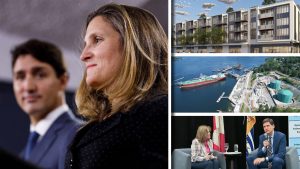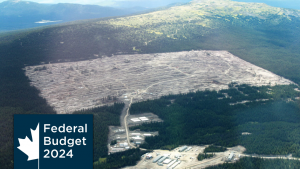VAUGHAN, ONT. — The Ontario Progressive Conservative Party (PC) recently issued its platform in the lead-up to the June 2018 provincial election and while the Residential and Civil Construction Alliance of Ontario (RCCAO) says the party is rightly concerned about traffic congestion, the proposal is “insufficiently forward-looking.”
According to a release, there is no mention of the role of ride-hailing services provided by Uber and Lyft on road and transit systems; the shift from combustion engines to alternate propulsion systems; or the growing need for new revenue tools to finance transportation systems.
The RCCAO recently released its second report on how the move to automated vehicles will impact transit and congestion across the province, titled Ontario Must Prepare for Vehicle Automation: How Skilled Governance Can Influence its Outcome. The report was written by Bern Grush, a systems engineer and futurist.
Grush predicts that advances in vehicle automation, incorporated in massive automated taxi fleets, will have significant consequences for public transit and traditional taxi systems. Rail systems should be safe from this transit shift, he states, if they are supported by government engagement with micro-transit services, for example, robo-taxis and robo-shuttles connecting riders to rail stations, adds the release.
One element the PC platform tackles when it comes to transit is a promise to pay $5 billion for new and existing subway projects in Toronto.
According to the RCCAO, under the PC proposal, the TTC would be responsible only for operating heavy rail, streetcar and bus services, with provincial capital for building subways, provided there is additional support from Ottawa. Cost-sharing arrangements for these major projects already exist, such as the soon-to-be-opened Spadina subway extension. Already, the under-construction Eglinton Crosstown is being delivered by provincial agencies Infrastructure Ontario and Metrolinx; once built, those operations will be turned over to the TTC, the release notes.
Currently, gas taxes provide municipalities with revenue for infrastructure including roads.
The RCCAO-commissioned research in 2014 and 2015 by professor Harry Kitchen concluded that gas tax revenues have not increased in more than 20 years and are likely to decline due to an increase in fuel-efficiency, an increasing reliance on electric and hybrid vehicles and people simply driving less, states the release.
In terms of mitigating congestion, he concluded that “fuel taxes to pay for transportation infrastructure is a second best option when compared to road and parking pricing.”
While road tolls are a third rail in politics, any forward-looking party must be open to pilot projects such as the high occupancy toll lanes being studied now on the QEW in Toronto, the RCCAO added.
The alliance encourages the Ontario PC Party to more fully investigate disruptive technologies ahead of the election, the release states.











Recent Comments
comments for this post are closed